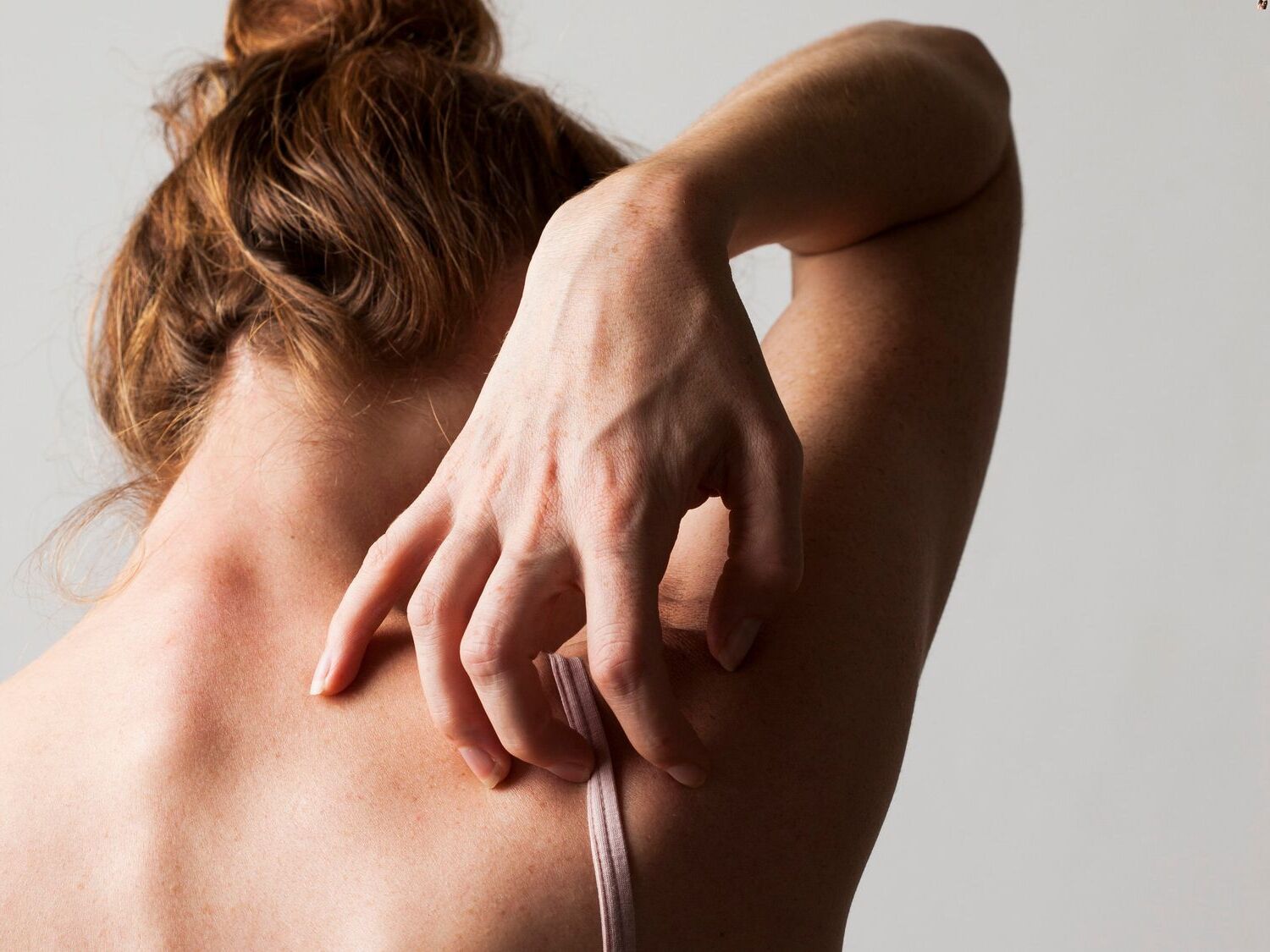
Ever wondered why you itch? Itching, or pruritus, is a common sensation that can drive anyone crazy. From bug bites to dry skin, there are countless reasons why you might feel the urge to scratch. But did you know that itching can also be a sign of something more serious? Understanding the causes of itching can help you find relief and know when to seek medical advice. In this post, we'll dive into 37 fascinating facts about itching, covering everything from the science behind it to surprising triggers. Get ready to scratch the surface of this intriguing topic and learn how to keep those pesky itches at bay!
Key Takeaways:
- Itching can be caused by dry skin, allergies, insect bites, and even internal diseases. Understanding the causes can help in managing and treating the sensation effectively.
- To relieve itching, try moisturizers, antihistamines, cold compresses, oatmeal baths, and stress management. If itching persists or becomes severe, seek medical advice.
What Causes Itching?
Itching, also known as pruritus, can be caused by various factors. Understanding these causes can help in managing and treating the sensation effectively.
-
Dry Skin: One of the most common causes of itching is dry skin. When skin lacks moisture, it can become tight, rough, and itchy.
-
Allergic Reactions: Allergens like pollen, pet dander, or certain foods can trigger itching. The body's immune response to these allergens often results in itchy skin.
-
Insect Bites: Mosquitoes, fleas, and other insects inject saliva into the skin, causing an itchy reaction.
-
Skin Conditions: Eczema, psoriasis, and dermatitis are skin conditions that often cause intense itching.
-
Medications: Some medications, including antibiotics and antifungals, can cause itching as a side effect.
-
Internal Diseases: Conditions like liver disease, kidney failure, and thyroid problems can lead to generalized itching.
-
Pregnancy: Hormonal changes during pregnancy can cause itching, particularly on the abdomen and breasts.
-
Infections: Fungal infections like athlete's foot or ringworm can cause localized itching.
How Does Itching Work?
The sensation of itching involves complex interactions between the skin, nerves, and brain. Here's a closer look at how it all works.
-
Nerve Endings: Specialized nerve endings in the skin detect irritants and send signals to the brain.
-
Histamines: When the body encounters an irritant, it releases histamines, which cause itching and inflammation.
-
Brain Response: The brain processes the signals from the skin and creates the sensation of itching.
-
Scratching Reflex: Scratching temporarily relieves itching by interrupting the nerve signals, but it can also cause more irritation.
Interesting Facts About Itching
Itching is not just a simple sensation; it has many fascinating aspects. Here are some intriguing facts about itching.
-
Psychological Itching: Just thinking about itching or seeing someone scratch can make you feel itchy.
-
Chronic Itching: Some people suffer from chronic itching, which can last for months or even years.
-
Itch-Scratch Cycle: Scratching can lead to more itching, creating a vicious cycle.
-
Nocturnal Itching: Itching often worsens at night, possibly due to changes in body temperature and hormone levels.
-
Itching and Pain: Itching and pain share similar nerve pathways, which is why scratching can sometimes feel painful.
-
Phantom Itching: People who have lost a limb can experience itching in the missing limb, known as phantom itching.
-
Itching in Animals: Animals also experience itching and will scratch, bite, or lick to relieve it.
How to Relieve Itching
Managing itching effectively can improve quality of life. Here are some ways to find relief.
-
Moisturizers: Applying moisturizers can help alleviate itching caused by dry skin.
-
Antihistamines: Over-the-counter antihistamines can reduce itching caused by allergic reactions.
-
Cold Compresses: Applying a cold compress can numb the area and reduce itching.
-
Oatmeal Baths: Colloidal oatmeal baths can soothe itchy skin and reduce inflammation.
-
Hydrocortisone Cream: This topical steroid can reduce inflammation and itching.
-
Avoiding Triggers: Identifying and avoiding triggers like certain foods or fabrics can help prevent itching.
-
Proper Hygiene: Keeping the skin clean and dry can prevent infections that cause itching.
-
Stress Management: Stress can exacerbate itching, so relaxation techniques like meditation can be helpful.
When to See a Doctor
While itching is usually harmless, sometimes it can indicate a more serious condition. Here are signs that you should seek medical advice.
-
Persistent Itching: If itching lasts more than a few weeks, consult a healthcare provider.
-
Severe Itching: Intense itching that interferes with daily activities or sleep needs medical attention.
-
Rash or Blisters: If itching is accompanied by a rash, blisters, or other skin changes, see a doctor.
-
Signs of Infection: Redness, swelling, or pus can indicate an infection that requires treatment.
-
Unexplained Itching: If you can't identify the cause of your itching, a doctor can help diagnose the issue.
-
Systemic Symptoms: If itching is accompanied by symptoms like weight loss, fever, or fatigue, seek medical advice.
Fun Facts About Itching
Itching has some quirky and fun aspects that you might not know about. Here are a few to tickle your curiosity.
-
Itchy Palms: In some cultures, itchy palms are believed to be a sign of coming into money.
-
Itchy Nose: An itchy nose is sometimes thought to mean that someone is thinking about you.
-
Itchy Ears: Itchy ears are often said to indicate that someone is talking about you.
-
Itchy Feet: Itchy feet can be a sign that you're about to embark on a journey or adventure.
Scratching the Surface
Itching, a common yet fascinating sensation, affects everyone at some point. From mosquito bites to allergic reactions, the reasons behind itching are diverse. Understanding the science of itching helps us manage it better. Histamines, released during allergic reactions, play a big role. Scratching, though it feels good, can sometimes worsen the itch.
Knowing when to seek medical advice is crucial. Persistent itching might signal underlying health issues. Simple remedies like moisturizing, using antihistamines, or applying cool compresses can offer relief.
Remember, our skin is our largest organ and deserves care. Stay hydrated, avoid irritants, and maintain good hygiene. By doing so, you'll keep itching at bay and enjoy healthier skin.
So next time you feel that familiar tingle, you'll know just what to do. Stay itch-free and take care of your skin!
Frequently Asked Questions
Was this page helpful?
Our commitment to delivering trustworthy and engaging content is at the heart of what we do. Each fact on our site is contributed by real users like you, bringing a wealth of diverse insights and information. To ensure the highest standards of accuracy and reliability, our dedicated editors meticulously review each submission. This process guarantees that the facts we share are not only fascinating but also credible. Trust in our commitment to quality and authenticity as you explore and learn with us.


